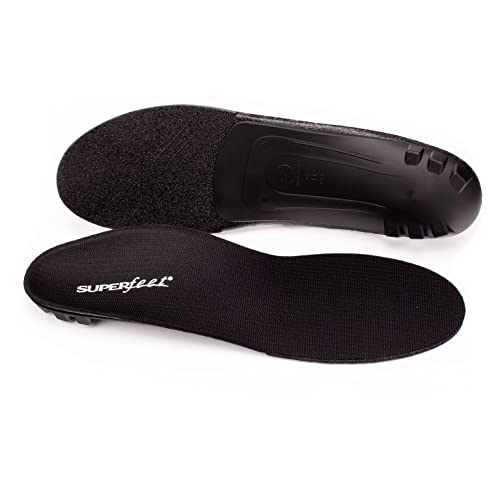Share the post "Soccer Players with Flat Feet (+ Cleats)"
You can see flat-footed players when you’re watching soccer. Players with flat feet stand and move differently than other players.
Flat feet is the term used when your foot’s arch appears absent. This results in most of the bottom of your foot coming in complete contact with the ground.
Flat feet can be categorized as rigid or flexible, with flexible being the article’s focus and the most common classification when people generically refer to flat feet. So what if the arch appears to be absent? Why is the arch of your foot so important? The arch supports the rest of your body when you stand or walk.
A lack of arch could result in discomfort, specifically when you use your feet more, whether walking longer distances, running, or playing soccer. Flat feet tend to occur as time progresses and are not typically painful, but many people have flat feet and are looking for solutions, either starting with the right shoe or the correct exercises to help.
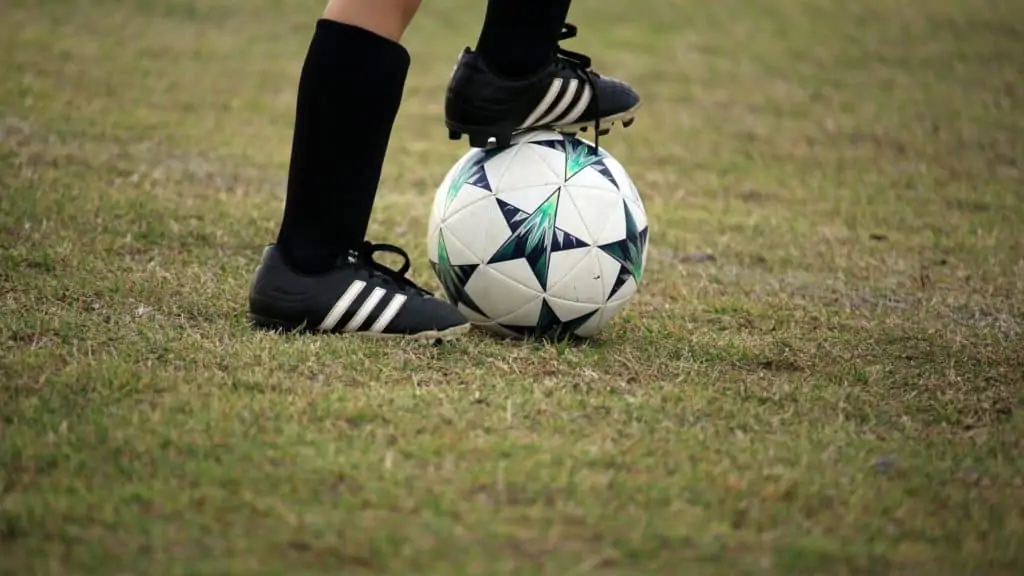
TOP THREE cLEATS FOR FLAT FEET
Product: Updated 2024-07-22 | Images: Amazon Product Advertising API | #ad - soccerblade.com is an Amazon Associate
Flat Feet – Fallen Arches
Soccer players with flat feet face unique challenges due to the structure of their feet. Flat feet, also known as fallen arches, mean that the arches of the feet are lower than usual or completely flat. This condition can affect balance, gait, and the overall biomechanics of the foot, which are crucial aspects of soccer.
Here’s an overview of considerations and adaptations for soccer players with flat feet:
Challenges Faced by Soccer Players with Flat Feet
- Increased Risk of Injury: Flat feet can lead to an uneven distribution of pressure across the foot, increasing the risk of injuries such as plantar fasciitis, shin splints, and ankle sprains.
- Reduced Stability and Balance: The lack of a natural arch can affect stability and balance, which are essential for soccer players during quick turns, sprints, and when striking the ball.
- Foot Fatigue: Players with flat feet may experience quicker foot fatigue due to less effective shock absorption during high-impact activities like running and jumping.
Managing Flat Feet in Soccer
- Proper Footwear: Soccer cleats with good arch support and cushioning are crucial. Some players may benefit from orthotic inserts specifically designed for flat feet.
- Strengthening Exercises: Exercises that strengthen the muscles of the feet and legs can help compensate for the lack of arch support. This includes exercises for the arches, ankles, and calves.
- Flexibility Training: Stretching exercises for the Achilles tendon, calf muscles, and plantar fascia can help alleviate tightness and discomfort associated with flat feet.
- Proper Warm-Up and Cool-Down: Engaging in thorough warm-up and cool-down routines can help prevent injuries related to flat feet.
- Regular Rest and Recovery: Given the extra strain flat feet may endure, adequate rest and recovery are important to prevent overuse injuries.
- Consulting Specialists: Regular check-ups with a podiatrist or a sports medicine specialist can provide personalized advice and treatment plans.
Adaptations in Playing Style
- Playing Position: Some positions in soccer may put less strain on the feet. Players with flat feet might find positions requiring less sprinting and more comfortable sharp turns.
- Technique Adjustments: Modifying running and striking techniques to accommodate flat feet can help reduce discomfort and improve performance.
Notable Soccer Players with Flat Feet
While having flat feet can be challenging, it doesn’t necessarily limit a player’s ability to excel in soccer. Many successful soccer players with flat feet have adapted their play style and used appropriate footwear and exercises to manage their condition effectively.
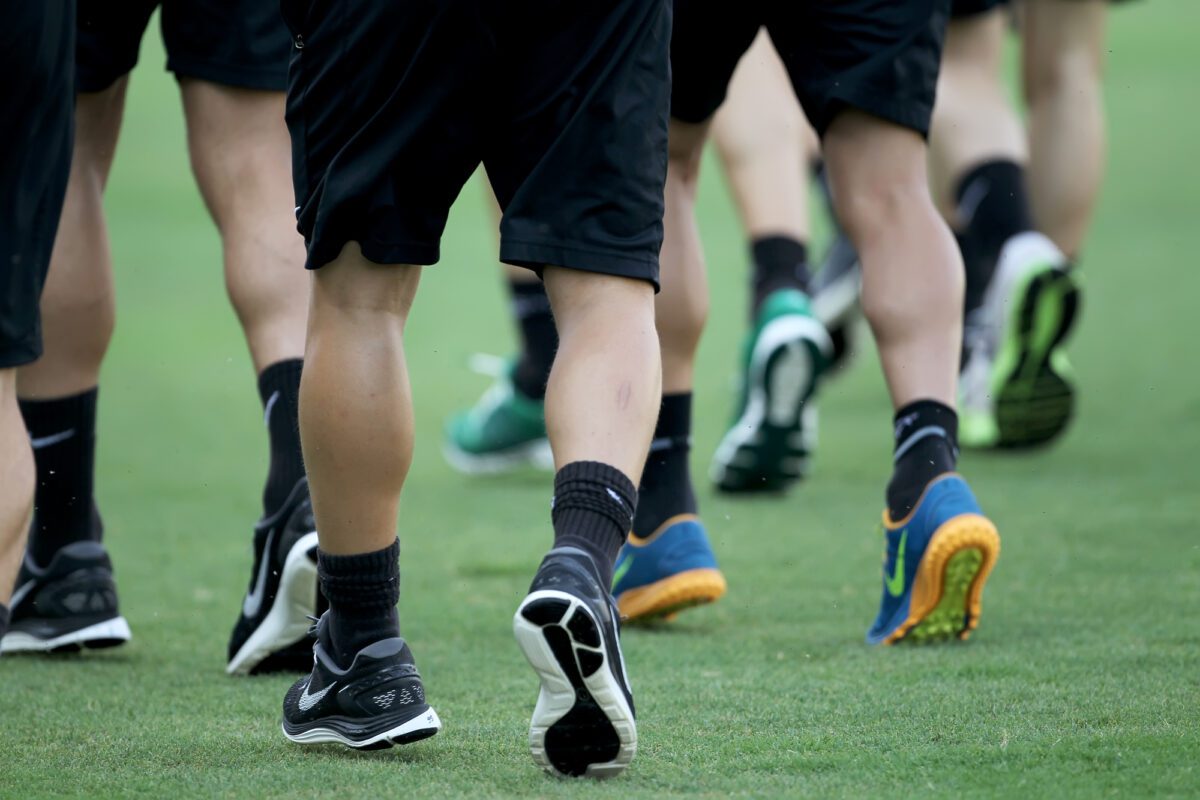
Do soccer players have flat feet?
Since every soccer player is not the same, flat feet are not ubiquitous in the soccer community. But that doesn’t mean there aren’t players with flat feet.
So many players have flat feet that exercises are designed to aid in strengthening your feet and ankles, and soccer cleats are recommended for flat feet. If you have flat feet and play soccer, know you aren’t alone!
- Luis Figo
- Michael Owen
- Robert Pires
Playing soccer with flat feet
Like many things, having flat feet probably doesn’t stop anyone from playing soccer; you might need to make some accommodations – cleat choice, stretching, rest, etc.
Because the arch of your foot absorbs shock when you run, it tends to reduce the stress on your muscles, bones, and joints. Since flat feet don’t allow you to absorb the shock of each step, your body may compensate and try to absorb the shock by changing your foot strike.
Technically, this would be considered a change in your foot pronation. If you don’t feel pain while playing soccer due to your flat feet, then great! Keep doing what you’re doing.
If you feel pain, it may be time to invest in cleats appropriately fitted for your flat feet to have more stability and cushioning while you play or take some extra time to complete strength exercises for your feet and ankles.
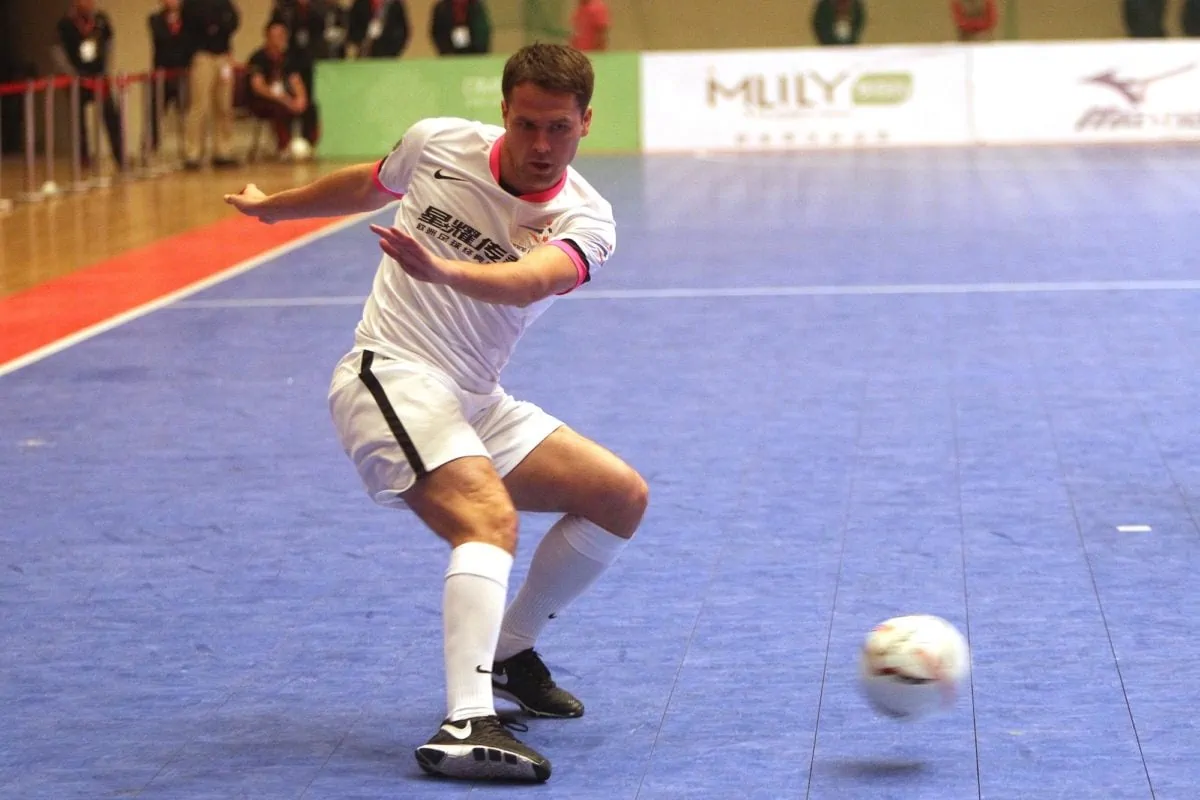
Advantages of being flat-footed in soccer.
We’re all looking for an edge to being the best soccer player, but unfortunately, being flat-footed doesn’t give you any superhuman soccer abilities. While it may not give you any special playing abilities, completing exercises designed for flat feet may help your foot and ankle strength and stability.
I doubt many of your non-flat-footed competitors are taking the time and dedication to do that!
How do you fix flat soccer feet?
While flat feet aren’t something that can be fixed entirely, specific exercises can help. The following is a list of some potentially helpful ones.
- Calf stretches
These can be done in many ways, including leaning your foot against a wall or standing and pulling your toes back toward your body.
- Tiptoe stretch
This can be done by standing on your toes and raising your heel as high as possible.
- Toe stretch
This can be done by keeping your foot on the floor and attempting to lift your big toe first, leaving the rest of the toes on the ground. This would then be repeated, keeping your big toe on the ground and raising the rest of your toes.
- Tennis/golf ball rolls
This can be done by sitting on a chair and rolling a tennis or golf ball under the arches of your foot.
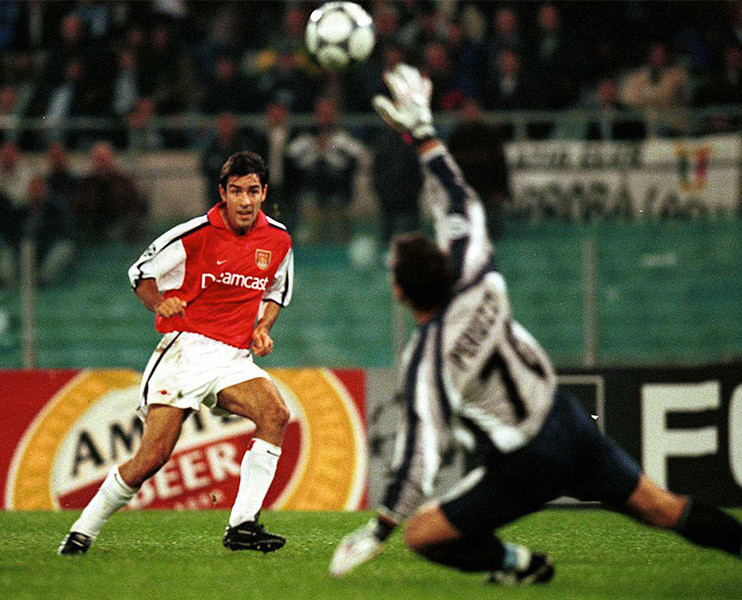
Prevent or Manage Foot and Ankle Injuries
Managing and preventing foot and ankle injuries in soccer players with flat feet requires a combination of proper footwear, targeted exercises, and good practice habits. Flat feet or fallen arches can lead to a higher risk of foot and ankle injuries due to less natural shock absorption and potential leg alignment issues.
Here are some tips and advice for soccer players with flat feet:
Footwear and Orthotics
- Proper Cleats: Choose soccer cleats that provide good arch support and are appropriate for the surface you’re playing on. Cleats with a slightly wider base can also be more comfortable for flat feet.
- Orthotic Insoles: Custom orthotic insoles can be a game-changer. They provide the necessary arch support, reduce strain on the foot and ankle, and improve overall foot mechanics. Consult with a podiatrist to get custom-fitted orthotics.
- Adequate Cushioning: Ensure your cleats have sufficient cushioning to absorb impact, especially when playing on harder surfaces.
These orthotic insoles are thin and absorb so much pressure. If you already have a pair of cleats that you like and fit well, throw a pair of the insoles in, and you’ll enjoy the game even more:
Product: Updated 2024-07-25 | Images: Amazon Product Advertising API | #ad - soccerblade.com is an Amazon Associate
Strengthening and Flexibility Exercises
- Arch Strengthening: Exercises like toe curls and arch lifts can help strengthen the muscles in your feet, potentially reducing the flatness of the arches over time.
- Ankle Strengthening: Calf raises, ankle circles, and resistance band workouts can strengthen the ankle and improve stability.
- Flexibility: Regular stretching of the Achilles tendon, calf muscles, and plantar fascia can help maintain flexibility, reducing the risk of injury.
Training Modifications
- Gradual Increase in Activity: If you’re new to soccer or returning from an injury, gradually increase your activity level to avoid overloading your feet and ankles.
- Proper Warm-Up and Cool-Down: Always start with a thorough warm-up to prepare your muscles and joints for the stress of playing. Follow up with a cool-down to help with recovery.
- Low-Impact Cross-Training: Engage in low-impact exercises like swimming or cycling to maintain fitness while reducing stress on your feet and ankles.
Recovery and Rest
- Adequate Rest: Ensure you get enough rest between training sessions to allow your body to recover.
- Ice and Elevation: After intense play or if you feel discomfort, use ice and elevation to reduce inflammation and promote healing.
Professional Guidance
- Consult a Specialist: Regular check-ups with a podiatrist or a sports medicine specialist can help monitor your foot health and catch potential issues early.
- Physical Therapy: If you’re experiencing persistent issues, a physical therapist can provide targeted exercises and treatment plans.
Lifestyle Considerations
- Weight Management: Maintaining a healthy weight can reduce the stress on your feet and ankles.
- Nutrition: A balanced diet rich in calcium and vitamin D supports bone health, crucial for foot and ankle strength.
By combining proper footwear, targeted exercises, and smart training practices, soccer players with flat feet can effectively manage and reduce their risk of foot and ankle injuries. Individual needs can vary, so it’s important to tailor these tips to your situation and consult with healthcare professionals as needed.
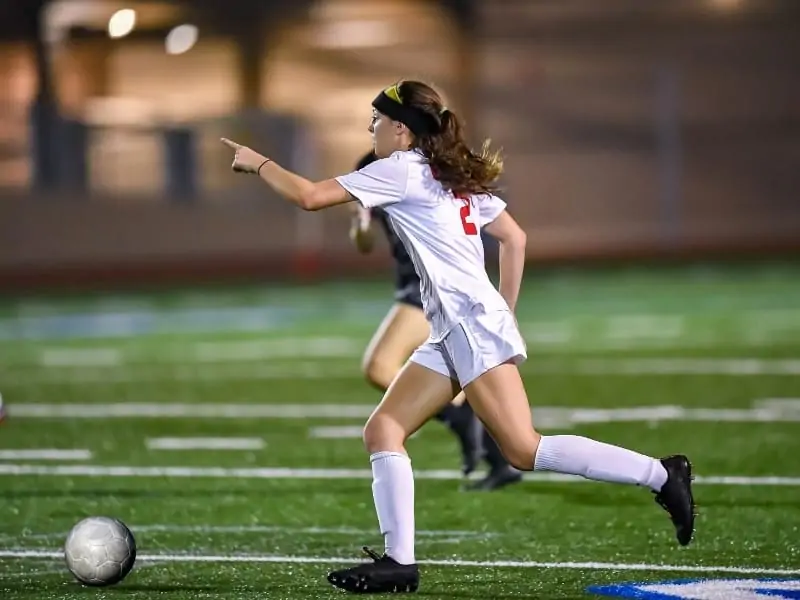
What are the best soccer cleats for flat feet?
Because no expert podiatrist weighs in on their best choice for a soccer cleat in patients with flat feet, the following recommendations are based on information from multiple sources.
This classic Nike cleat has been around since the 1980s, so with the newest iteration, you’re getting all those years of wear and tear, trial and error. Players like Sergio Ramos and Gerard Pique have been known to wear them, so you know you’re in good hands.
Product: Updated 2024-07-25 | Images: Amazon Product Advertising API | #ad - soccerblade.com is an Amazon Associate
- Asics Lethal Tigreor
Although Asics has seemingly limited professional soccer players on its payroll, they know a thing or two about making shoes. The Tigreors come highly recommended within the flat-footed community.
Product: Updated 2024-07-22 | Images: Amazon Product Advertising API | #ad - soccerblade.com is an Amazon Associate
- Mizuno Morelia
While you may not see too many players wearing Mizuno’s cleats on the field, they are recommended for flat-footed soccer players. One of their higher profile professional soccer players is Fernando Torres, who has a signature boot with the brand.
- Wider fit for added comfort
- This boot with screw-in studs offers a wide fit, lightweight...
- Featuring ZeroGlide removable sockliner for enhanced...
- The forefoot upper pattern is similar to MORELIA NEO...
- Easy to hose off clean
Product: Updated 2024-07-24 | Images: Amazon Product Advertising API | #ad - soccerblade.com is an Amazon Associate
- Adidas Copa Mundial
The classic soccer cleat of classic soccer cleats. Even your mom would be able to pick Copas out of a lineup. There’s a reason these cleats are so beloved and flat-footed players have even more reason to love them.
- Legendary soccer cleats for stability on firm natural ground
- Leather upper with premium K-leather in the forefoot for...
- Move with explosive speed and traction on dry natural grass...
- Die-cut EVA midsole for lightweight comfort
- Soft, durable synthetic lining
Product: Updated 2024-07-19 | Images: Amazon Product Advertising API | #ad - soccerblade.com is an Amazon Associate
If none of those cleats strike your fancy, you can also try orthotics designed for flat feet and place those in the cleats of your choice.
Of course, if you feel the pain you cannot ease, always seek the advice of a medical professional. Get out there and play, flat feet and all!
Share the post "Soccer Players with Flat Feet (+ Cleats)"
Joel is a seasoned soccer journalist and analyst with many years of experience in the field. Joel specializes in game analysis, player profiles, transfer news, and has a keen eye for the tactical nuances of the game. He played at various levels in the game and coached teams - he is happy to share his insight with you.






